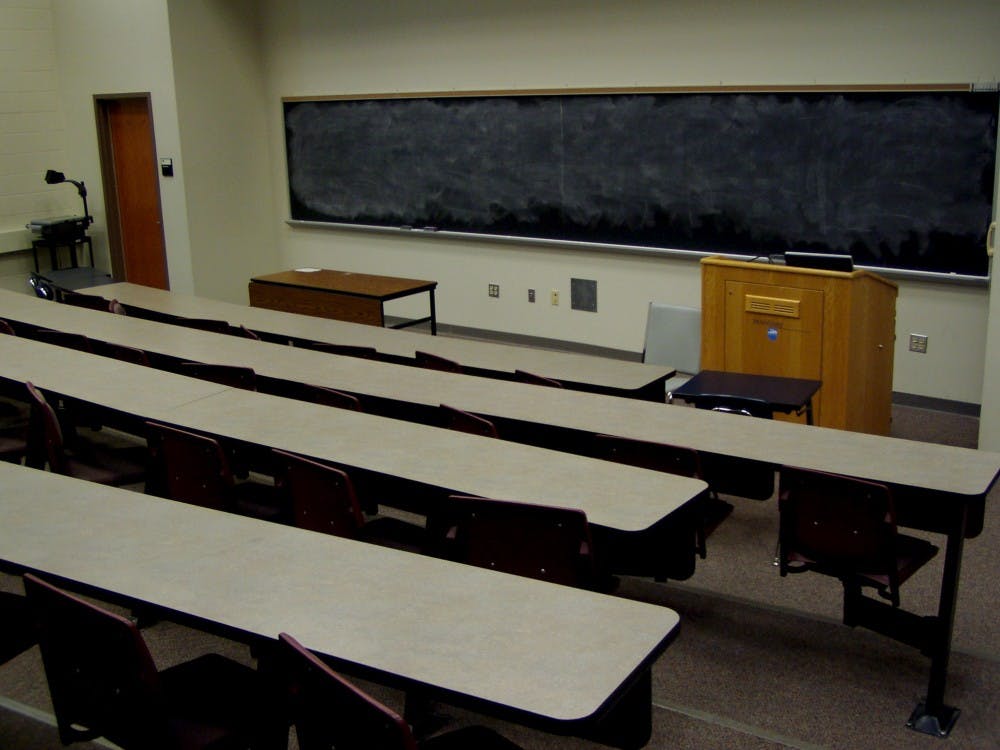By Ally Horine and Julia Oller | Echo
Taylor is launching a campus-wide department review to increase efficiency and discover how best to utilize resources. The university is closely examining every department as a result of recent financial concerns related to smaller enrollment numbers and increasing operating costs.
Officially known as the University Programs Review, the study will affect every area of campus, from the Biology Department to landscaping. According to Provost Jeffrey Moshier, each vice president is responsible for overseeing the report for his department.
Every section of campus has unique needs and, therefore, will have different categories for review. The reports being filed will assess areas such as efficiency, expenditures, faculty/staff necessities and equipment needs. The academic departments must submit their reviews to the dean of their respective department by Feb. 1.
At the end of the school year, the university deans will turn the reports into recommendations for action steps. The goal is to have the recommendations in the hands of the cabinet (the president and vice presidents) by Oct. 1, 2015.
The end result of these inquiries is to see how Taylor can better steward its resources. While financial cuts are necessary, the hope is that no area is hit too hard.
"The idea is to have mutual sharing of any of the budget cuts or reallocations but also to be mutually beneficial so one group not absorbing all changes," Moshier said.
In reviewing each department, the university will also reallocate funds to growing departments. Data will help decide but will not be the only factor in determining finances. Since Taylor emphasizes a well-rounded education, the review will take into account how each department fits within a liberal arts mindset.
"The bottom line is not determined by data," Moshier said. "We can't just look at revenues and make decisions when we're more concerned in many ways with 'mission fit' -what it is to be a liberally educated person."
Taylor's department review follows a trend of self-examination in colleges nationwide. A March 2013 study by Academic Impressions polled 115 universities both public and private on their plans for internal analysis. Nearly half of the colleges surveyed had already started the review process and a quarter were preparing to begin. Many of the universities who performed these assessments were in crisis mode.
Though Taylor is healthy, the University Programs Review comes on the heels of a $1 million deficit. A portion of the shortfall can be attributed to lower enrollment in the recent classes.
According to Chief Financial Officer Stephen Olson, the class of 2018 has 440 members. A healthy range is between 460-500 incoming students and transfers.
As numbers decrease and expenses increase, the university faces the dilemma of how to keep Taylor affordable while still maintaining academic excellence. Moshier said Taylor is committed to raising tuition as little as possible (with an average increase of two percent per year), but increased operational costs demand additional funds.
"If we don't find money to reallocate, we'll be hard-pressed to keep the tuition increase at aneven two percent," Moshier said.
The review will identify programs from which dollars can be drawn so students don't have to bear the financial burden. Ron Sutherland, vice president for business administration, said that taking a thoughtful approach to the process ensures campus needs are being met across the board.
Last summer, student workers measured every inch of every building on campus to determine the ratio of staff members to square feet. This level of dedication to detail, combined with input from workers, allows for an honest assessment of the best ways to support other departments like academics.
"It's like finishing a course," Sutherland said. "It's hard work but worth it in the end."




